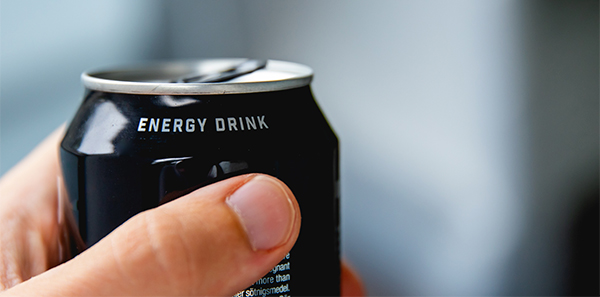
There’s currently a boom in the popularity of energy drinks, especially amongst young people and amateur athletes. One of the reasons for this is their accessibility, as they can be found in any shop and even in gyms, but another reason is that they lead to addiction and dependence.
The definition of this product isn’t set out in a specific set of regulations and is included within the soft drinks category. Likewise, there is no regulation that indicates the permitted ingredients, maximum concentrations or possible combinations. Considering all this, are they really beneficial?
Composition
The ingredients consist mainly of water, sugar, caffeine, vitamins, minerals and non-nutritive stimulants such as taurine, ginseng and guarana. In principle, these stimulants aren’t harmful, but if they’re ingested in large quantities and on a regular basis, they could become dangerous to health and significantly disrupt the nervous system.
In terms of the caffeine dose (160mg in a 500ml can), it’s double that of an espresso coffee (80mg per cup). If we take into account that the recommended daily dose in young people between 10 and 18 years old should not exceed 100mg (half a cup of espresso), it’s clear that these drinks exceed these limits.
Dangers to the body
It has been shown that minutes after consuming these high intakes, they can cause a dangerous spike in blood pressure and a rise in stress hormone levels.
Energy drinks are also linked to a number of short-term health problems, including insomnia, dehydration, chest pain, dizziness, headaches and gastrointestinal problems. In the long term, health problems become more complicated, with heart rhythm disturbance, addiction and withdrawal symptoms, increased heart rate, seizures, changes to blood pressure, nervousness, anxiety and even depression, not to mention weight gain and obesity issues caused by the large amount of sugars and empty calories these drinks contain.
In addition, when they’re mixed with alcohol, the effects worsen, as this combination can increase the risk of heart attacks, hormonal problems and nervous system disorders.
Because of all this and after having had cases of young people and athletes admitted to hospital, some countries like France, Norway and Denmark have withdrawn these products from the market. In Spain, Galicia will be the first autonomous community to ban the sale of these beverages to anyone under the age of 18. The aim is to reduce the consumption and sale of this type of drink, especially in young people.
So, in conclusion, although they cointain ingredients that may be positive in themselves, like vitamins, and can help increase concentration, motivation and alertness, it’s preferable to look for these effects and nutrients in other food sources that are better for health. We shouldn’t forget to drink plenty of water, avoid sugary drinks and alcohol, get good quality sleep, eat a good diet and take regular exercise.
Alba Bonell
Nutritionist












